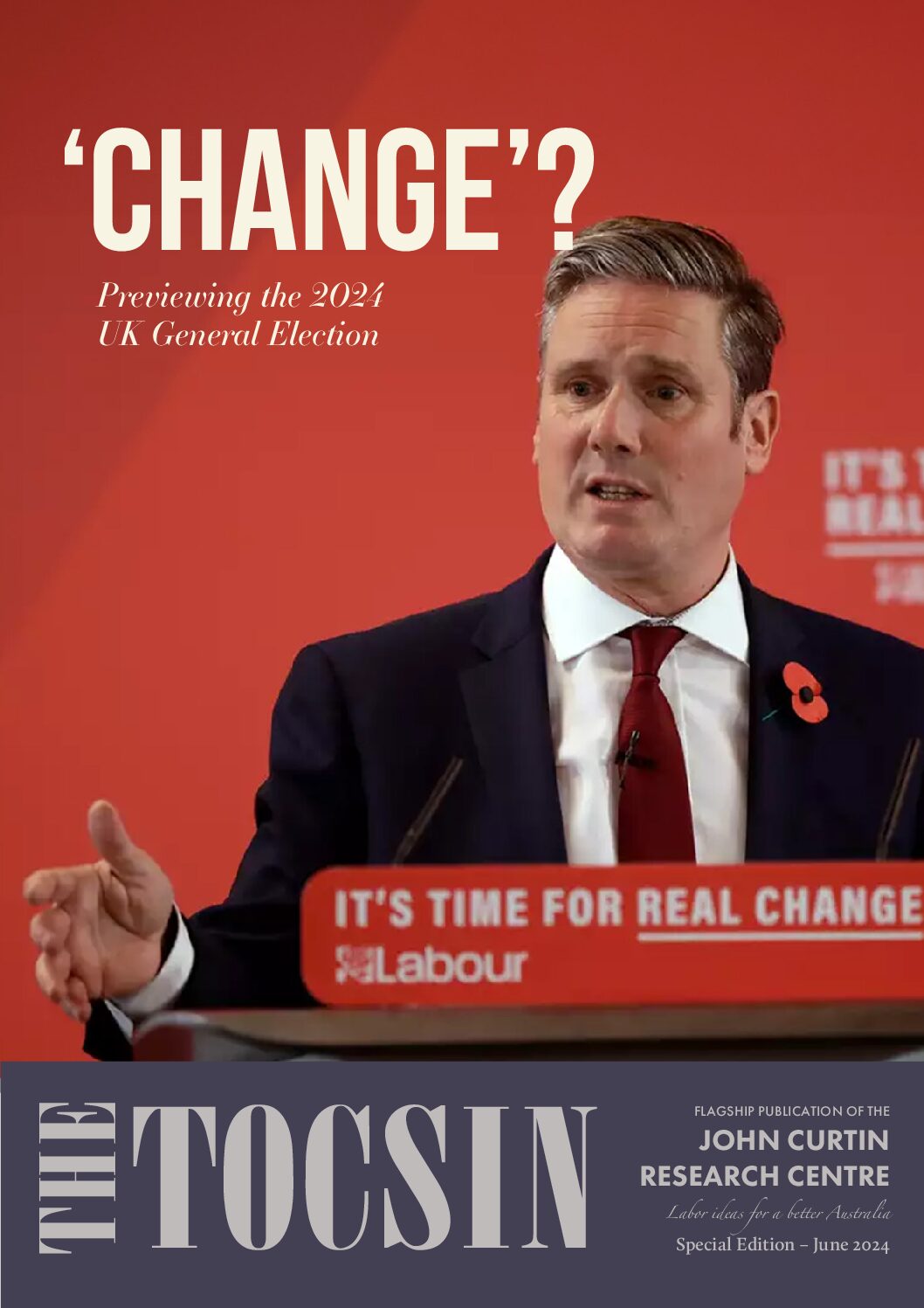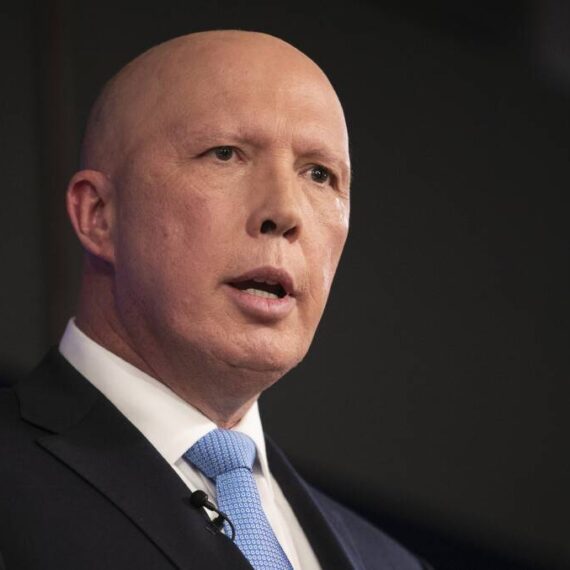It’s 40 years since Bob Hawke became Labor leader. Now the Albanese government must throw off nostalgia while continuing the Labor tradition of reform.
Forty years ago today, Bob Hawke became leader of the federal parliamentary Labor Party. His ascension constituted a fait accompli, fuelled by his (and his mother’s) belief in his prime ministerial destiny. Bill Hayden, who had been the Labor leader since 1977 and treasurer in the dying days of the Whitlam government, had resigned days earlier, having been tapped by senior figures, notwithstanding his efforts in improving Labor’s electoral fortunes.
The previous year Hayden had been challenged by Hawke, then the shadow minister for industrial relations. A lingering fear within caucus persisted: could Hayden, in his own words, be the “drover’s dog” to win office? Hawke was elected to the leadership unopposed. On the same day that Hayden resigned, the then prime minister, Malcolm Fraser, called a snap election seeking to avoid a contest with the popular Hawke. The strategy failed and Hawke led Labor to a comfortable victory at the ensuing March election.
The Hawke–Keating government changed Australia forever and largely for the better. Upon taking office, Hawke sought to distance himself and the party from some of the excesses of the Whitlam government (though Gough had in fact laid the groundwork for the modernising work of the Hawke–Keating Labor government, carried out over a record 13 continuous years). Hawke emphasised prudent economic management and consensus decision-making.
What followed was a sweeping reform agenda to address Australia’s sclerotic economy: floating the dollar, deregulating parts of the economy and privatising some government-owned assets such as Qantas. Nonetheless, where Margaret Thatcher carried this out in Britain by attacking unions, Hawke’s Labor worked with them through the Prices and Incomes Accord struck with the Bill Kelty–led ACTU and by implementing a “social wage”, as well as through schemes such as Medicare (a revamped and popular version of Whitlam’s Medibank) and compulsory superannuation paired with wage restraint.
Despite critics from the left, Hawke’s government sought to bring greater equity to the tax system by introducing capital gains and fringe benefits taxes, but it maintained that the best way of increasing the prosperity of Australians was by pursuing a policy of economic growth, as well as expanded employment, training and education, and carefully targeted assistance to the disadvantaged. The environment took on a new salience, including saving the Franklin River from being dammed. Further action towards gender equality followed, embodied by the presence of women in cabinet positions. Engagement with Asia, embracing multiculturalism and reconciliation were pursued with vigour, especially by Hawke’s treasurer and successor as PM, Paul Keating. Five elections were won in a row before losing office to John Howard in 1996.
For years after losing government, Labor found itself caught between an unease with aspects of the Hawke–Keating agenda – notably the impact on manufacturing and aspects of industrial relations – and nostalgia. It held Labor back from developing new, more relevant policies that responded to the deep-seated structural problems bedevilling Australia’s economy.
This latter point is one of the underlying messages of Treasurer Jim Chalmers’ widely commented upon essay for this masthead, “Capitalism after the crises”. As Chalmers writes, recounting the advice one journalist gave to him prior to delivering the Albanese government’s first budget: “Experience would matter, but hers was a neat reminder not to assume that what had worked in the past would necessarily work in the present.”
Some critiques of the treasurer’s essay are so intellectually shabby they scarcely deserve a response: Chalmers and Albanese are no crypto-communists, nor are they betraying the Hawke legacy (one not supported at the time by their opponents, in any case). Chalmers’ social capitalism thesis is scarcely new. As he wrote in Meanjin in 2015, the nation clung to what he termed Austalgia, “a pining for the … politics of the 1980s, which holds us back from dealing with the challenges of the future. If our democracy has a crisis, I believe this is it.”
It is richly ironic therefore that critics of “political correctness” are in fact imposing a form of that thinking – apparently identifying the pitfalls and reforming the excesses of free-market fundamentalism or neoliberalism is somehow off limits. Yet this constitutes Labor’s historic mission: “civilising” capitalism in the interests of working- and middle-class Australians, or “labourism”, eschewing utopian radicalism for pragmatic reform.
Like the Hawke government, Albanese’s Labor confronts perilous economic conditions – in part the result of the indolence of the Abbott–Turnbull–Morrison years – including geopolitical tensions in our own region and Russia’s brutal war in Ukraine.
The Albanese government’s actions thus far – prudent and consensus-driven – have proved popular. In this it represents a clear and welcome break from the ad hoc, “captain’s call”–style operations of Scott Morrison but is clearly in the tradition of reforming Labor governments in that it is responding to the challenges of the present. This is not to argue that 2023 hasn’t begun rockily, notably in the debate over an Indigenous voice to parliament.
Yet the signs are positive that the Albanese government can address the challenges of this moment. The current cost-of-living and energy crises, rising interest rates, productivity, longer-term problems around housing and a Medicare system under immense strain, “an orderly energy and climate transition”, the need to shore up defence policy and cybersecurity – it’s all there in Chalmers’ essay, alongside a new spirit of “collaboration and cooperation”. It isn’t a rehashed 1980s agenda, and critics would be well advised to read the essay rather than glance at headlines. Chalmers, much like his mentor Wayne Swan during the global financial crisis, is clearly labourist in adapting to our times. One rather imagines Bob Hawke would be nodding in hearty agreement.





